Although I am a personal development blogger by profession, I am in no way a mental health professional. See my disclaimer for more info.
Have you been feeling unproductive lately? In this post, I’ll give you 9 helpful tips on how to avoid burnout.

Have you been feeling exhausted lately? From school, work, or your creative life? That’s probably because you’ve been experiencing burnout.
We all go through it every once in a while. I know I experience burnout when I’m working on a project (like this blog) for too long without taking breaks. When that happens, it’s hard to find the motivation or self discipline to get back in normal swing of things.
Burnout is definitely tough, but it’s not impossible to get out of. If you’ve been experiencing this lately, keep reading to learn all about how to avoid burnout. I’ll give you my 9 most helpful tips to stay productive when you’re having trouble getting things done.
This post is all about how to avoid burnout.
What is burnout?
Chances are you’re going through a period in your life where you feel like you just can’t get much done. Whether that’s at work, at school, or even in your creative life, you might be feeling a sense of burnout.
This happens when you feel exhausted from regular mental, physical, or creative activities.
You’ll start to feel different signs, like headaches, tiredness, and lack of motivation. Your body will let you know if you’re burnt out. Don’t ignore the signs!
We all go through burnout at some point in our lives. It’s usually because we either feel underworked or overworked.
Keep reading to learn about how long burnout lasts, as well as the different kinds of burnout.
How long does burnout last?
You might think (or hope) that burnout will only last a few days. While that is sometimes true, burnout could last from several weeks to months, depending on what’s causing it and what you’re doing to get out of it.
This is why it’s so important to do what you can to avoid burnout in the first place.
Types of burnout:
Did you know there are different types of burnout? I didn’t either! Here they are:
1. Overload burnout
This is the most common type of burnout. It means that you feel overwhelmed because you are overworked — whether it’s by yourself or by an employer.
2. Neglect burnout
This kind of burnout happens when you feel like people around you aren’t giving you the resources that you deserve.
For example, you constantly email your English professor for help with your research paper but they rarely respond. Then, you get a bad grade on your essay and you notice that your mental health takes a toll.
This is considered neglect burnout because you feel like you can’t get the information that you need to succeed. You constantly ask for information, but nobody gives it to you, so you feel exhausted and stressed.
3. Under-challenged burnout
Yes, you can feel burnt out if you feel like you’re not being challenged enough!
It’s a real thing.
If you feel like what you’re doing isn’t academically or professionally demanding enough, you might start to feel burnt out because the work you’re doing is, well, “too easy.”
If you really want to grow and develop, you’re going to need some kind of challenge.
How to Avoid Burnout:
1. Remember to take breaks

No matter how long you work, you need to breaks. You can’t be as efficient as possible if you don’t give your brain a rest every now and then.
This is especially true if you’re self-employed. When you don’t have a boss, you get to create your own schedule. That comes with many pros and cons.
One of the biggest cons, though, is that you sometimes forget to include breaks in your daily schedule.
So then you end up working for 2 hours straight before taking a brain break. Before you know it, you have a headache from staring at your screen all day.
This can also apply to students. Don’t forget to take a break when you’re doing your daily homework assignments. I know it’s tempting to try and get everything done in one sitting, but that will do more harm than good.
You’re not giving your all to each assignment, so that can harm your productivity.
Plus, if you’re doing most of your homework digitally, you could strain your eyes. This could lead to dry eyes and a painful headache. Who wants to deal with that?
Importance of taking breaks
These are a few reasons you should take breaks when working:
1. To recharge your brain
When you’re working, you have a lot of information that enters your brain at once. That can lead to overwhelm and overstimulation if you go too long without taking a break.
So, it’s good to take a break every now and then to recharge your brain.
2. To get new ideas
Have you ever tried to sit down and brainstorm an idea for a project but no matter now long or hard you thought, you just couldn’t think of one good idea?
That’s probably because you have too much going on in your mind and you need to take a —you guessed it— break.
When you spend some time away from your workflow, this can allow your creative juices to flow and give you new ideas that you probably wouldn’t have imagined before.
3. To prevent tiredness
If you work for too long without taking a break, you’re going to get tired.
That’s just that!
You need to take some time away from what you’re doing so you don’t feel exhausted from your tasks. Then, when you come back from your break, you can be as efficient and productive as possible.
what to do during a break
Alright, I’m doing all this talking about breaks, but what should you do during a break? This will depend on how long your break is and what environment you are in.
In general, though, here are some great things to do while you wait to get back to work:
- Take a power nap
- Go outside and get a fresh breath of air
- Drink some water
- Eat a snack
- Use the restroom
- Read (spend some time off your devices)
- Talk to your family members/others around you
I suggest using a Pomodoro timer while you work. With this timer, you work for 25 minutes and then take a 5-minute break. It’s great because it’s automatic; you don’t have to do any extra work to set more timers along with this one.
2. Don’t over-schedule yourself
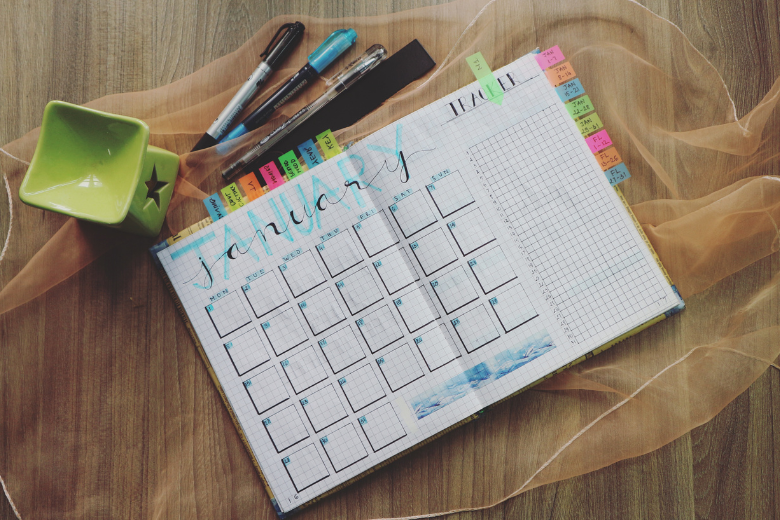
Many times we feel burnt out because we put way too much on our plates.
It’s time to be realistic about what we can handle in a 24-hour frame. If you’re feeling burnt out on a daily basis, take a look at your daily schedule and try to figure out what’s causing this exhausted feeling.
- Are you spending too much time on a certain task?
- Are you scheduling too many tasks everyday?
- Is your daily schedule realistic?
- Do you even have a daily schedule?
Answering these questions should start to help you avoid burnout on a daily basis and feel more productive (and sane).
In your daily schedule, you should, of course, include tasks that will help you be more productive and work towards a bigger end goal.
But, you shouldn’t do so many things to where you feel like it’s impossible to finish your to-do list.
If that’s the case, that’s a sign you need to re-evaluate your schedule and maybe remove a few tasks to make it more realistic and doable.
FREE daily planner
My planner is the perfect simple, yet effective daily tool to help you keep your daily life in order. It includes a task list, a notes section, and my favorite part: a daily evaluation, where you reflect on your day!
To get the planner, click here now!

3. Catch up on sleep
If you’re not already getting enough sleep, now is the time to start.
You should aim to get about 8 hours of sleep every night. You’re going to be tired and sluggish throughout the day if you don’t get the amount of sleep that your body needs.
That’s eventually going to lead to a burnt out feeling.
Getting enough sleep is key to having a successful, productive day.
You can’t head into a new day without getting a good amount of sleep. That’s like convincing yourself that you’re going to ace your calculus test knowing that you never studied for it.
You’re setting yourself up for failure!
When you get enough sleep, you are able to put more time and energy into the aspects of your life that need it most.
RELATED POST:3-Step Simple Morning Routine for a Productive Day
4. Set and work toward SMART goals
Setting goals is great and all, but if you really want to see some progress, you need to set SMART goals.
A SMART goal is a goal that satisfies these criteria:
- S: Specific — get detailed with this goal; it can’t be something generic or vague. It shouldn’t be something that just anybody could set as a goal. Make it as specific as possible so you’ll be more likely to achieve it.
- M: Measurable — will you be able to track your progress on this goal as time goes on?
- A: Achievable — is this a reasonable goal? In other words, is this goal actually one that you see yourself accomplishing (in a timely manner)?
- R: Relevant — why does this goal matter to you? What value does it hold? What inspired you to set this goal? Make sure this goal aligns with your identity, values, and beliefs.
- T: Timely — when do you want to achieve this goal? in 2 weeks? in 2 years?
When you’re burnt out, it’s hard to find the motivation to get back on your feet and back into the normal swing of things.
But, if you have goals that you want to accomplish, you can think of them any time that you experience that exhausted feeling.
Make sure that any time you set a goal, it’s specific, measurable, achievable, relevant, and time-based.
If your goals follow those criteria and you consistently make progress toward them, you’ll be much more likely to achieve your goals.
5. Do things you love

I know this is all about being productive, but you can’t be productive without taking care of yourself first. Doing fun self care activities is another way to take a break and give you the motivation to get back to work.
Here are some self care activities you can do:
- Read a blog post
- Watch your favorite TV series
- Catch up with a friend
- Have a spa day
- Listen to music
RELATED POST: 9 Best Self Care Activities for Mental Health
FREE SELF CARE ACTIVITIES LIST
Would you like a free self care activities list? I know it can be difficult to think of different self care ideas, so I did the work for you! I created a FREE list of 81 self care activities that you can enjoy.
To get the list, simply click here.
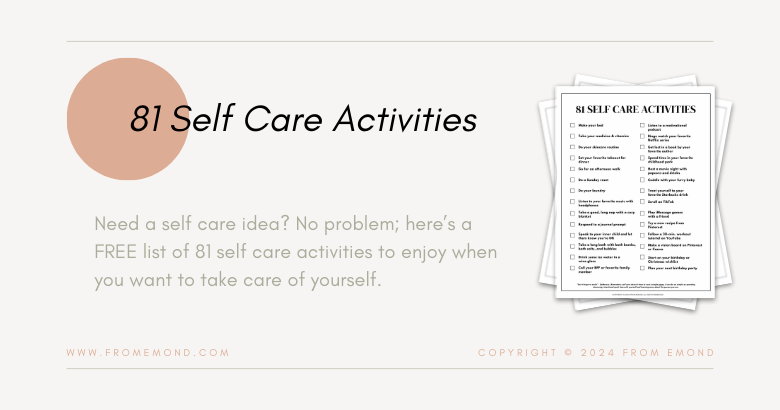
6. Meditate
You really don’t know the power of meditation until you start meditating.
When you meditate, you close your eyes and try to be mindful. This is a time to not worry about anything but how you’re feeling in the moment.
Meditation is great if you’re feeling burnt out because it allows you to take control of your focus and calm. I’ve learned that if you hear distractions, that’s part of the experience.
There’s no such thing as being a good or bad meditator.
Simply starting is already putting you on the path to being more mindful and intentional! I encourage you to try it sometime. You can try silent meditation or follow a guided meditation on YouTube or an app like Calm.
I talk more about meditation and its benefits in this post: 23 At Home Self Care Activities to Enjoy
7. Find inspiration/motivation
I feel like a lot of times when we’re burnt out, it’s because we don’t have any sort of inspiration or motivation to push us to feel productive.
When you see someone else living the type of life that you wish to live, that lights something in you and it makes you want to put in the work to be just like them.
Or maybe better! As humans, we are naturally competitive after all.
So, where do you find inspiration and motivation? You can find motivation online — specifically on Pinterest and on blogs.
The important thing is to not compare yourself. It’s too often that we look for motivation, but end up comparing ourselves to our peers instead.
What good is that going to do?
Not only are you bringing yourself down, but you’re also downplaying the success of whoever it is that you’re looking up to.
You’re comparing your experiences to theirs, and you most likely have no idea what they’ve been through to get where they are now.
Instead, look at your peers and others as a source of inspiration, not competition.
Please remember, though, that you can’t only rely on either of these to get through life. You won’t always be motivated to get up and work.
Sometimes, you’re going to have to do some positive self-talking or have some self-discipline to really do what you need to do.
8. Be kind to yourself

Please be kind to yourself!
No matter where you are in life, you need to treat yourself with kindness. Remind yourself that, even though you may not feel the most productive in the moment, you won’t feel like this forever.
It’s comforting to know that your season of burnout won’t last forever. I wish I could say, “Oh, it will pass; don’t worry about it,” but it really isn’t that simple.
See, most of the time, we feel burnt out at our jobs or in school.
We can’t afford to fail in these areas of our lives because they dictate how our future lives will go. So, instead of being negative and focusing on the fact that you can’t seem to get things done, try to focus on the positive.
9. Separate personal and professional life
If you don’t already, you should separate your personal and professional life.
If you’re constantly thinking about your job — whether you have a boss or you’re self-employed — this in itself can cause burnout.
Why? There’s never a moment that you aren’t thinking about your professional life. You have to get out of the habit of always thinking about your job.
I understand that if you’re a creative, it’s nearly impossible to not think about your craft. You’re unintentionally thinking of:
- Blog post ideas
- Song titles
- Book characters
- Movie plots
- All other sorts of creative ideas
But, this can lead to burnout really fast.
How to separate personal and professional life
You know that you need to separate the two, but how?
What has helped me is to keep my phone out of reach. Nowadays, we do quite a lot of business online (especially on our phones). We can use that to our advantage!
- Are you constantly checking your work email? Remove your business email from your phone.
- Are you constantly adding new blog post ideas to your notes app? Use a physical notepad instead.
This doesn’t only apply to the personal vs. professional life battle. You can also apply these strategies to your academic life.
For example, if you’re overly aware of your grades, you might want to delete your school’s grade book app from your phone. That way, you’ll have to go on your computer any time you want to check your grades.
Implementing these strategies will help you create a healthier balance between your personal life and other aspects of your life, like your job, academics, and other important areas of your life.
How to Avoid Burnout:
Let’s recap.
In this post, we talked about how to avoid burnout:
- Remember to take breaks
- Keep a realistic, achievable schedule — remember to get my FREE daily planner here
- Maintain a healthy sleep schedule
- Set + work on SMART goals
- Do things you love (self-care) — remember to get my FREE self care activities list here
- Connect spiritually
- Don’t be hard on yourself
- Separate personal vs. professional life
When you implement these tips, you will be more productive and get things done in a more efficient, less stressful way.
Please remember to take time to take care of yourself! Check out this post about FREE self care activities: 7 Fulfilling Free Self Care Activities for Self Growth
In the midst of chaos, don’t forget to smile,
DeMarcus – your self care buddy
PIN IT FOR LATER:
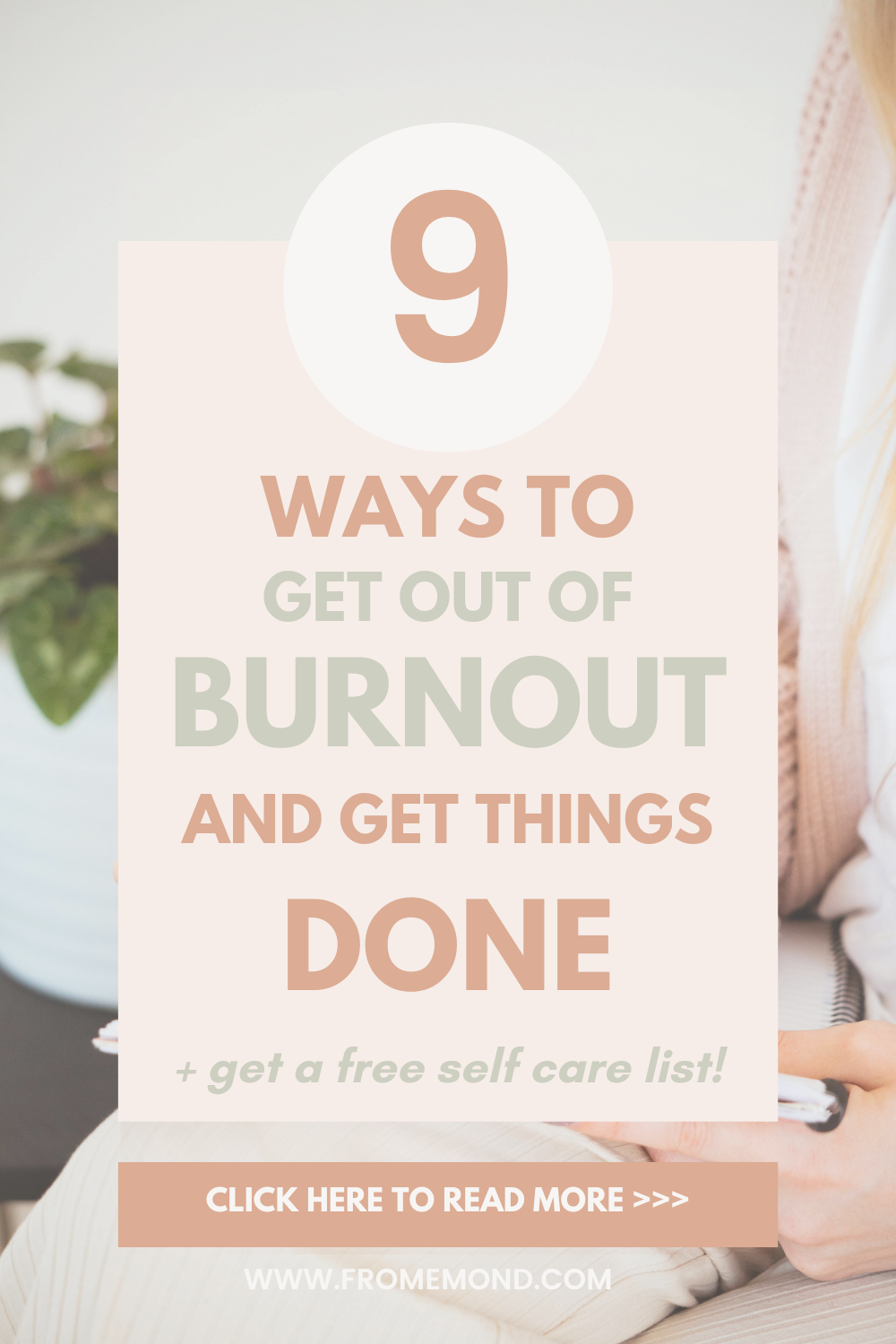
This post was all about how to avoid burnout.
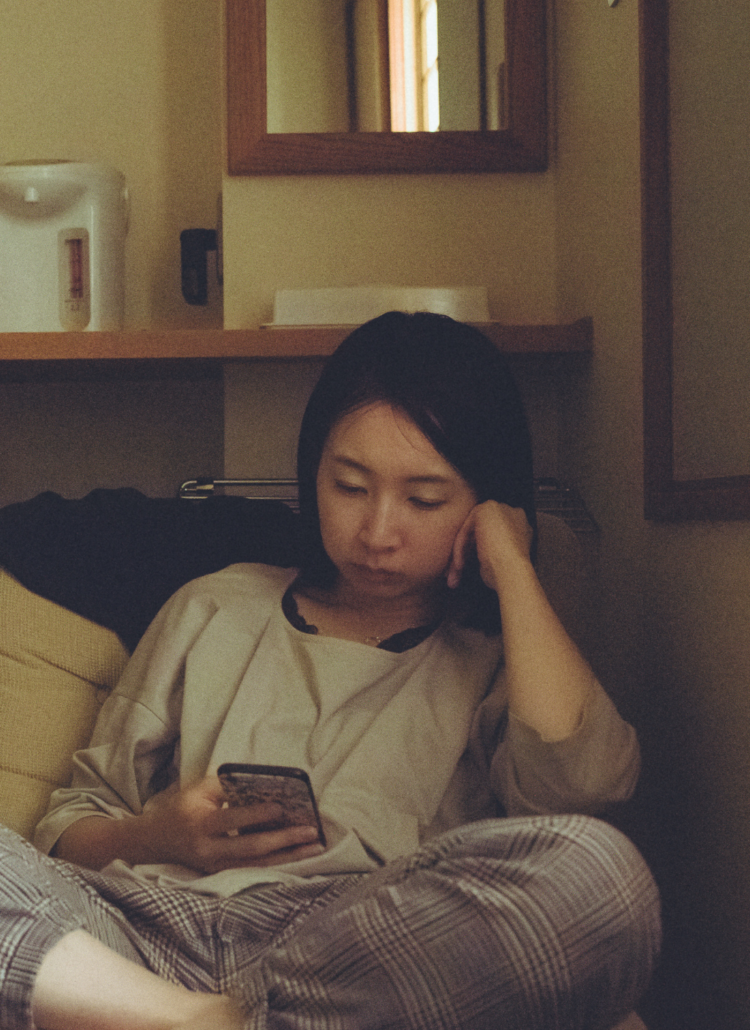
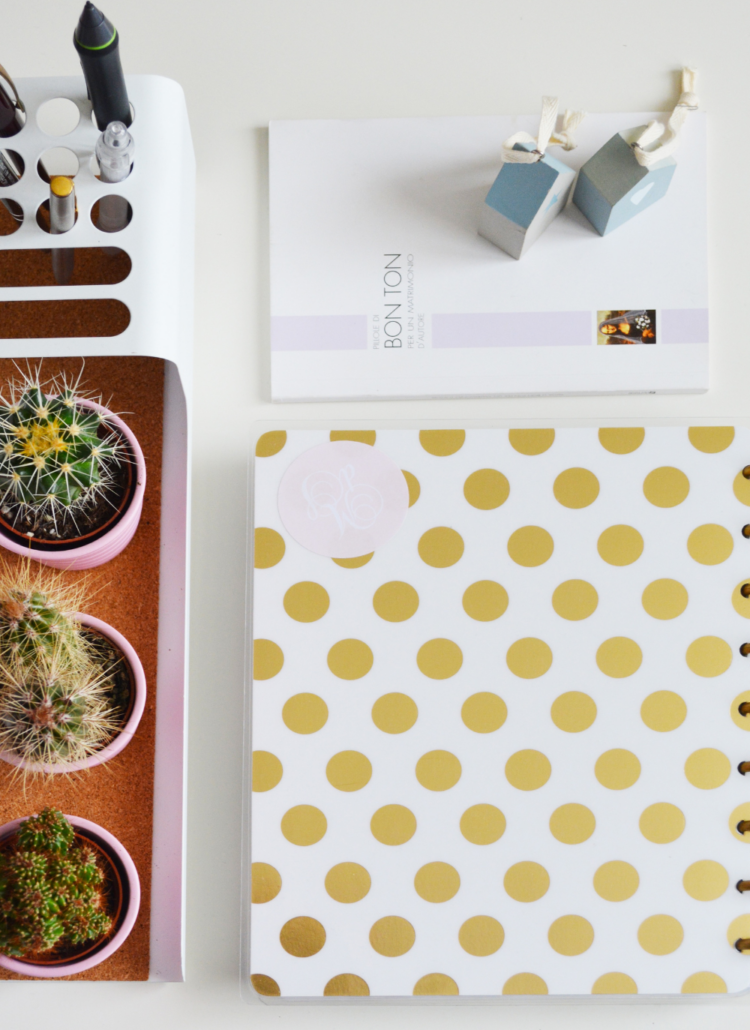
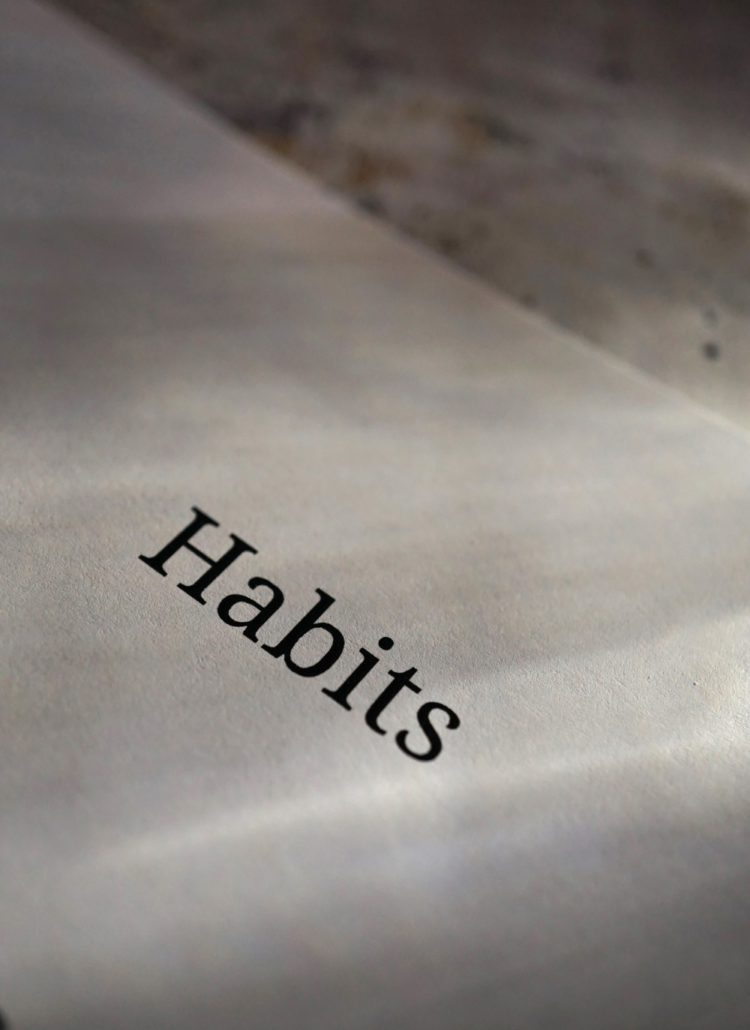

Leave a Reply